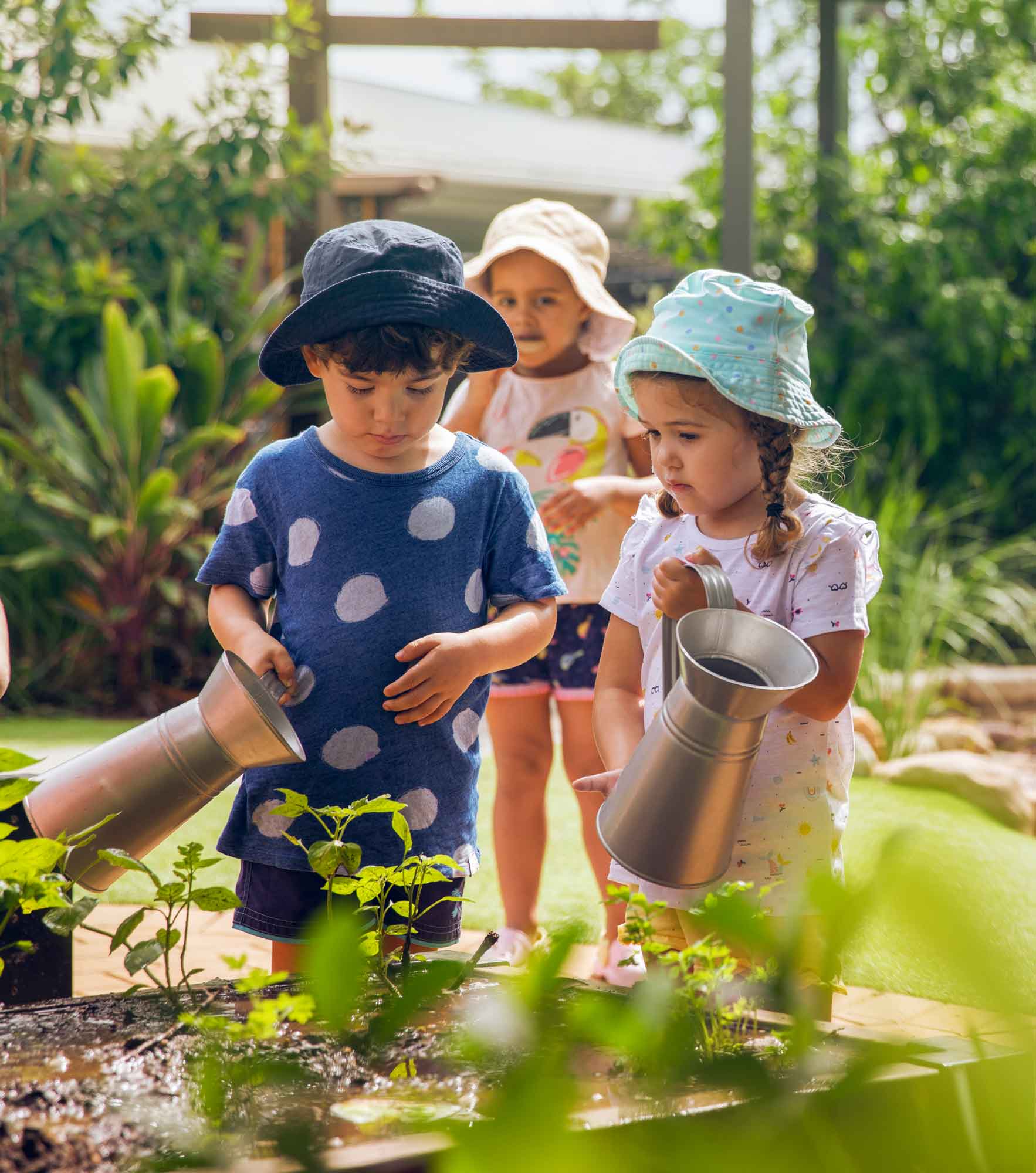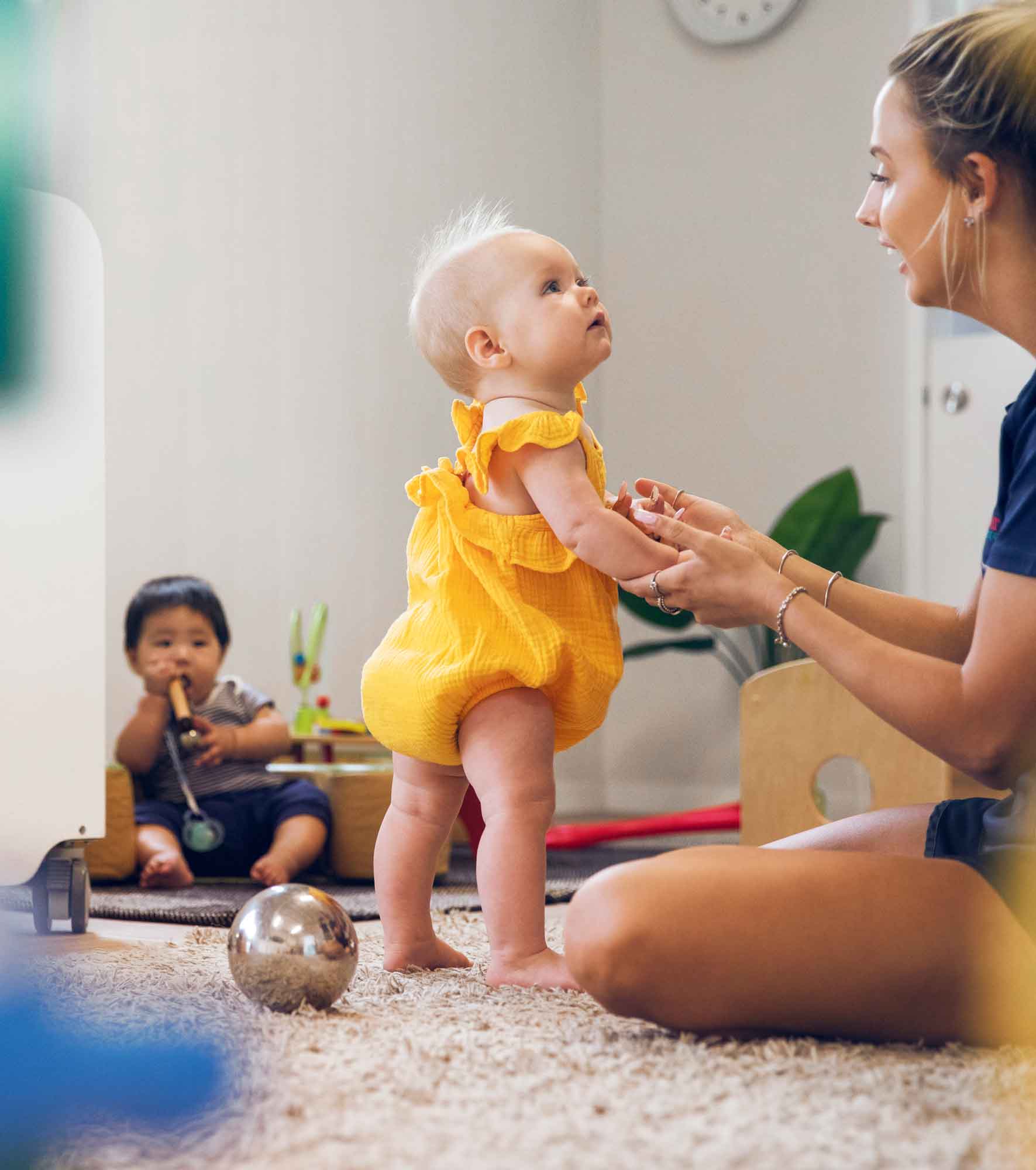A Parent’s Guide to School Transition
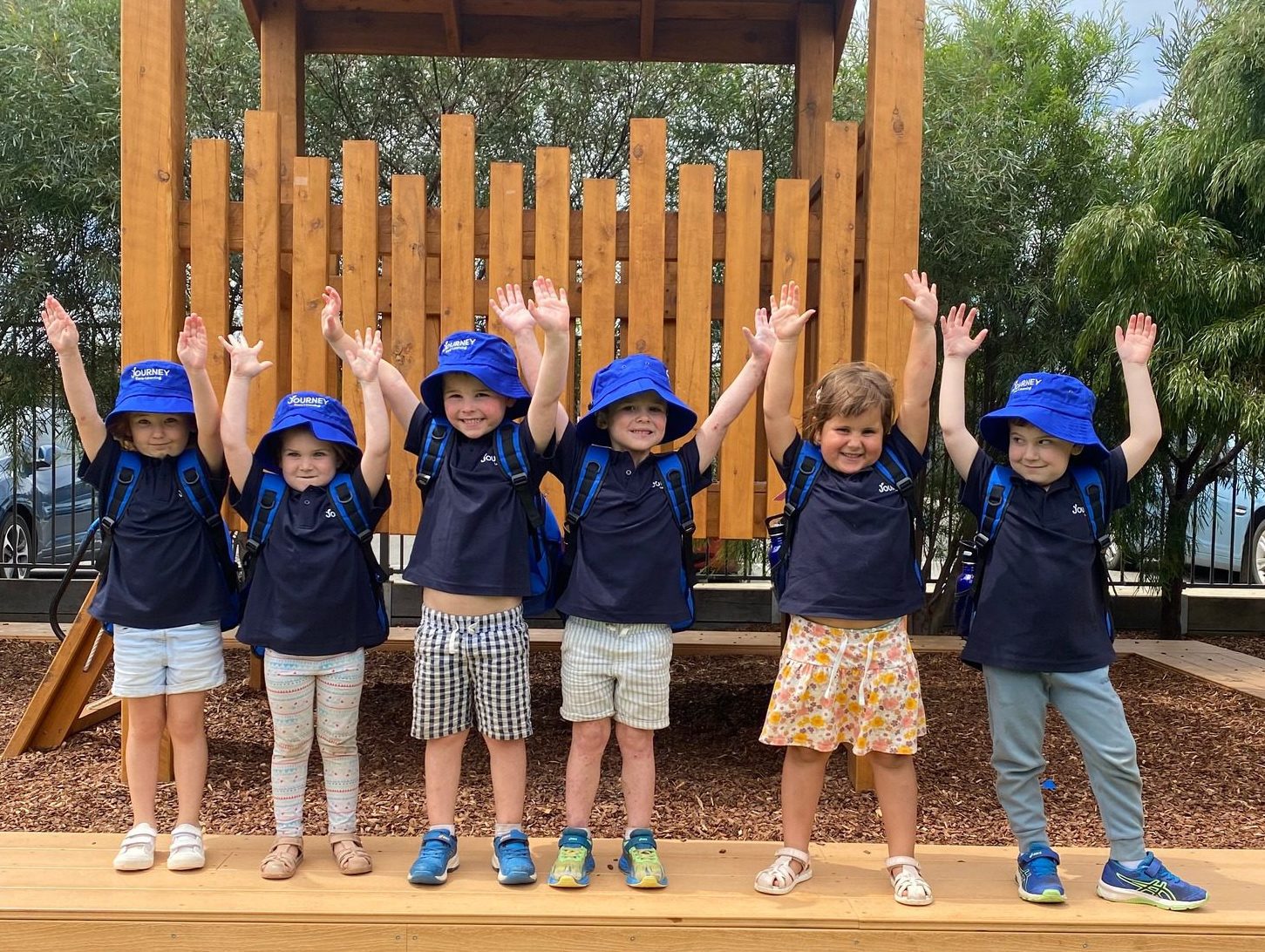
Is my child prepared for the Transition to School?
Journey Thomastown Early Childhood Teacher, Princess Galaraga is well respected throughout the community for her endorsed and renowned Kindergarten Program. Princess has provided us with a guide to assist families with their child’s transition to school.
Once a child starts 3 or 4-Year-Old Kinder, a parent’s mindset can be inundated with thoughts and questions around their child’s transition to school. Which school is the best in the area? Do I opt for government? Catholic? Independent? Do I take my child to the school that I went to? The one closest to us? I really like this specific school; do I have to relocate to get into their zone? How many of my child’s Kinder friends will go to the same school as them? These are all very common questions you may be asking – with one key and crucial question remaining… “is my child actually prepared for their transition to school?”.
So, what defines “prepared”?
Being prepared for school is much bigger than your child knowing their 1-2-3’s and A-B-C’s. Looking holistically, being school ready includes your child’s emotional maturity, language and communication skills, social skills and ability to undertake simple self-help tasks independently. By following Journey’s School Readiness Program, you can be assured that we work closely with your family to ensure your child is working towards ticking those crucial boxes needed for their transition to school.
Learn more about Journey’s Funded Kindergarten Program
Create positive Transition to School
Transitioning to school is a big step in a child’s life and deciding which school is the right fit for your child and your family is important. Journey has provided a number of ways to assist with the transition to school with as little stress as possible.
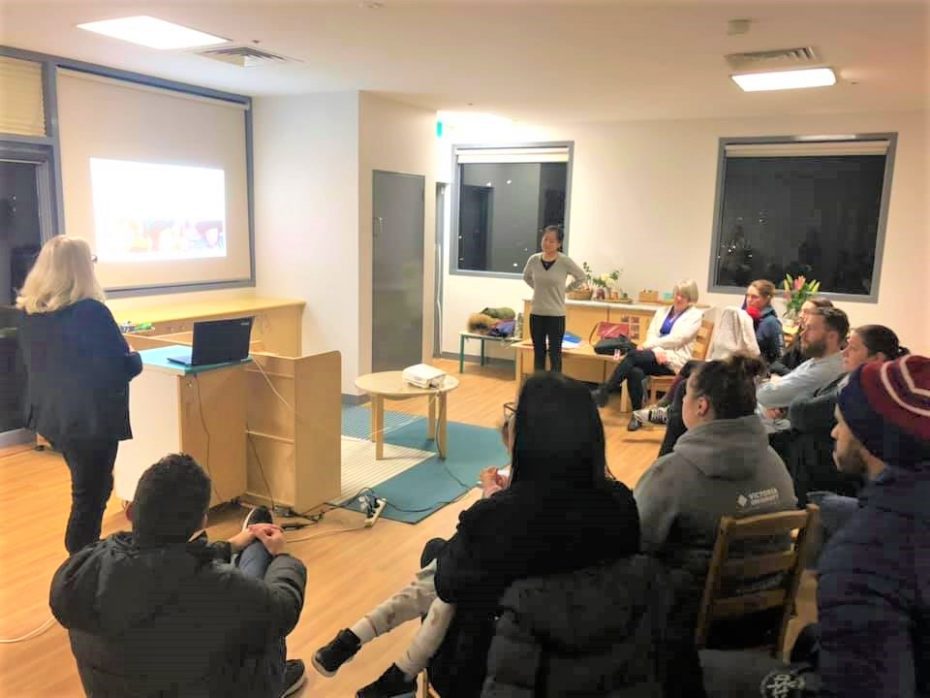
1. Attend our Kinder Information Night
At Journey, we host a Kinder Information Night where we discuss Kinder-to-Prep transitions. It’s an open session where parents can have a chat with the teacher and other like-minded families about transitioning.
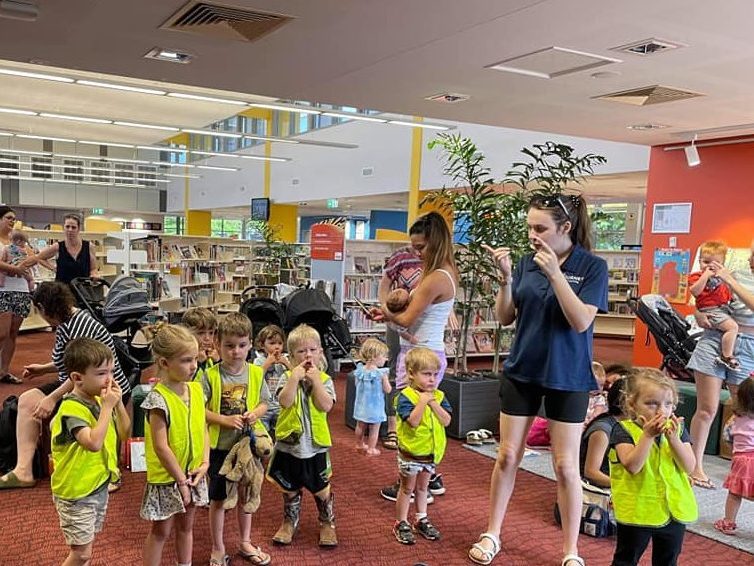
2. Learn about our external program
We have links to local schools, and the ability to create relationships with multiple schools in the area. Our children often visit schools for transition programs, sports days or special event days, library visits and more. Journey encourages you to learn about the external programs that we run and how they can help to create a sense of belonging and community for your child.
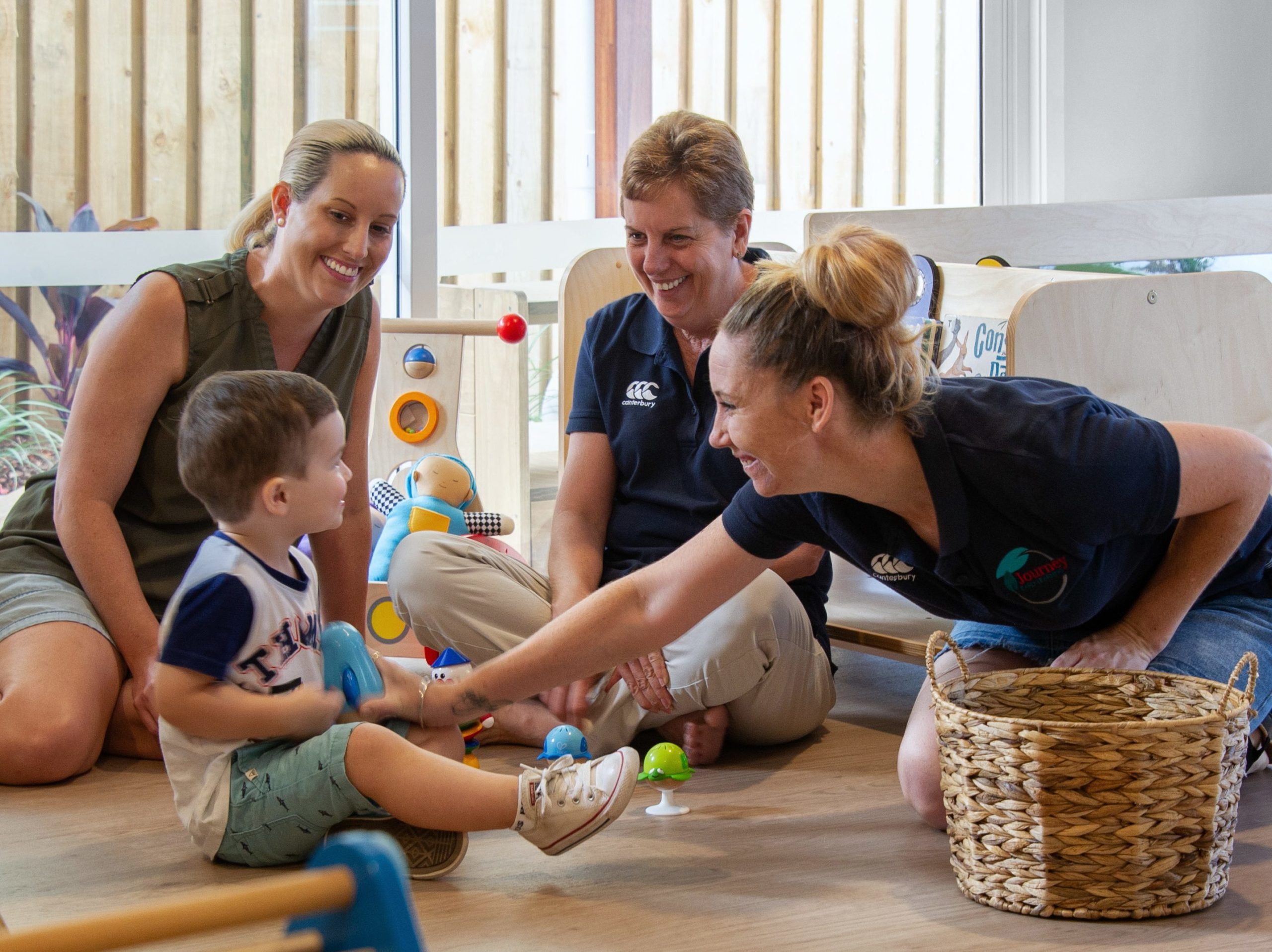
3. Visit Open Days
- We recommend you go to various school’s open days. Even if a school isn’t on your shortlist, it’s still an excellent opportunity to see how each school operates, their facilities and how they can accommodate your family’s needs. We try to promote open days through Storypark as much as we can.
- Take your child with you to the open day/tour. They are the ones who will be going to the school, so it’s important their opinions are heard.
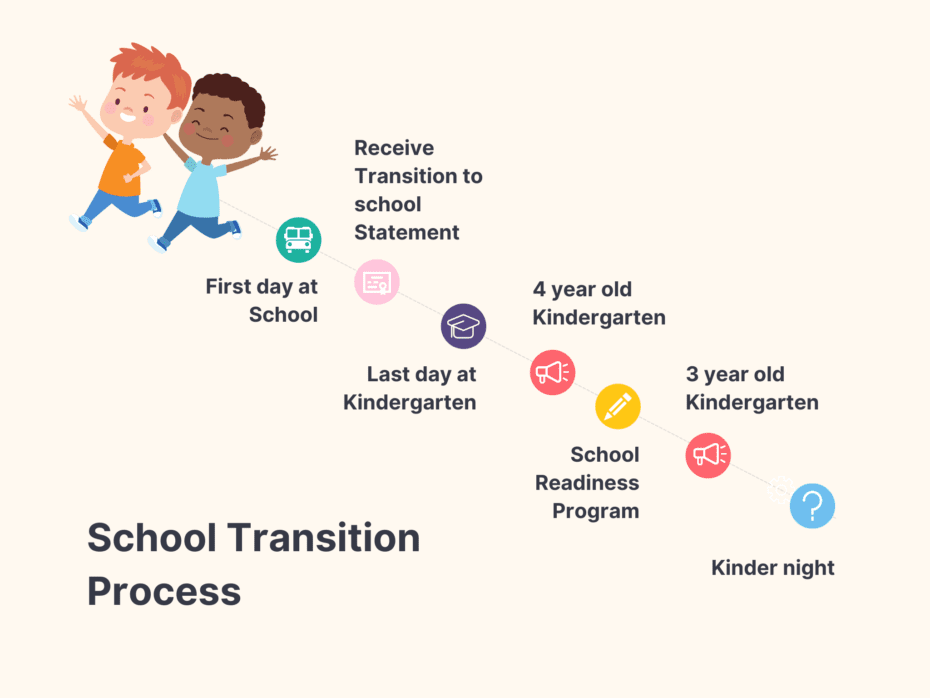
When does the transition start?
With these three steps in mind, a positive transition to school starts as soon as your child begins their 3-Year-Old Kinder year. The centre runs a School Readiness Program which as mentioned above, is so much more than the 1-2-3’s and A-B-C’s. Your child’s ability to complete self-help tasks such as; their ability to go to the toilet on their own, independence in changing their own clothes, opening and packing away their own lunch boxes, speaking up for themselves, listening and following instructions from the teacher, are all of equal if not higher importance than literacy and numeracy.
Kinder information night
A chance for the centre to inform parents about their Pre-Kinder and Kinder programs. Information for parents to know the difference between integrated Kinder and sessional Kinder. Explanation of the Kindergarten funding and what it means for their school fees.
3-year-old Kinder (or Pre-Kindergarten)
Children are exploring their independence and are testing the boundaries. Lots of cause-and-effect experimentation through hands-on manipulations. They are on the path of learning about themselves and are now vocal about their preferences.
School Readiness Program
A set of skills that the child practices in preparation for formal schooling. Emphasis on resilience, independence, and self-help capabilities.
4-year-old Kindergarten
Last day at Kindergarten
A graduation ceremony is held either on-site or at a venue with peers and families to celebrate the child’s achievements.
Creation of Transition Learning and Development Statements (TLDS)
the early childhood teacher writes Section 1 of this transition statement which highlights the child’s achievements, strengths and learning styles. Section 2 incorporates the child’s voice and Section 3 are for parents to complete. This is the handover document between Kinder to Prep. Meetings between the Early Childhood Teacher and Prep Transition Coordinator may occur.
First day of School
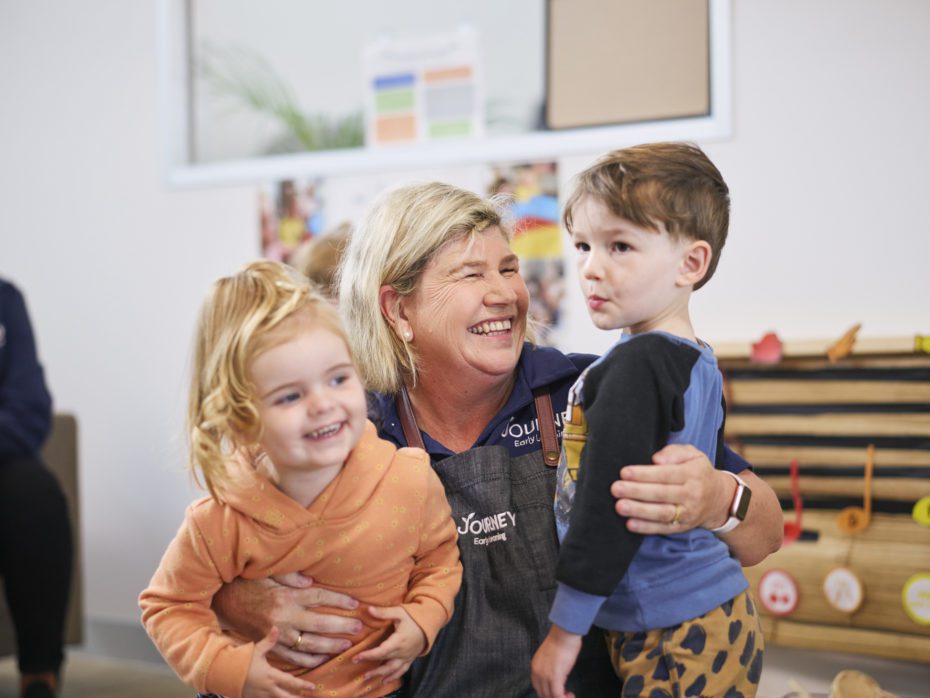
Tips for parents to support the Transition to School
- Encourage your child to ask questions to the principal or to whoever does the school tour.
- Instill independence and self-help skills such as packing their own bag, filling up their drink bottles and preparing their clothes the night before.
- Teach A-B-C and 1-2-3 concepts through real-life experiences.
- Can your child help you with the groceries? Ordering, packing/unpacking, sorting etc. are all great skills for your child to learn.
- Play games with them to touch on a whole host of learning domains: literacy, numeracy, and inquiry. This will also show you how your child responds to games – an insight into how they view winning, losing, fairness and equality.
More information: Getting ready for primary school 2022
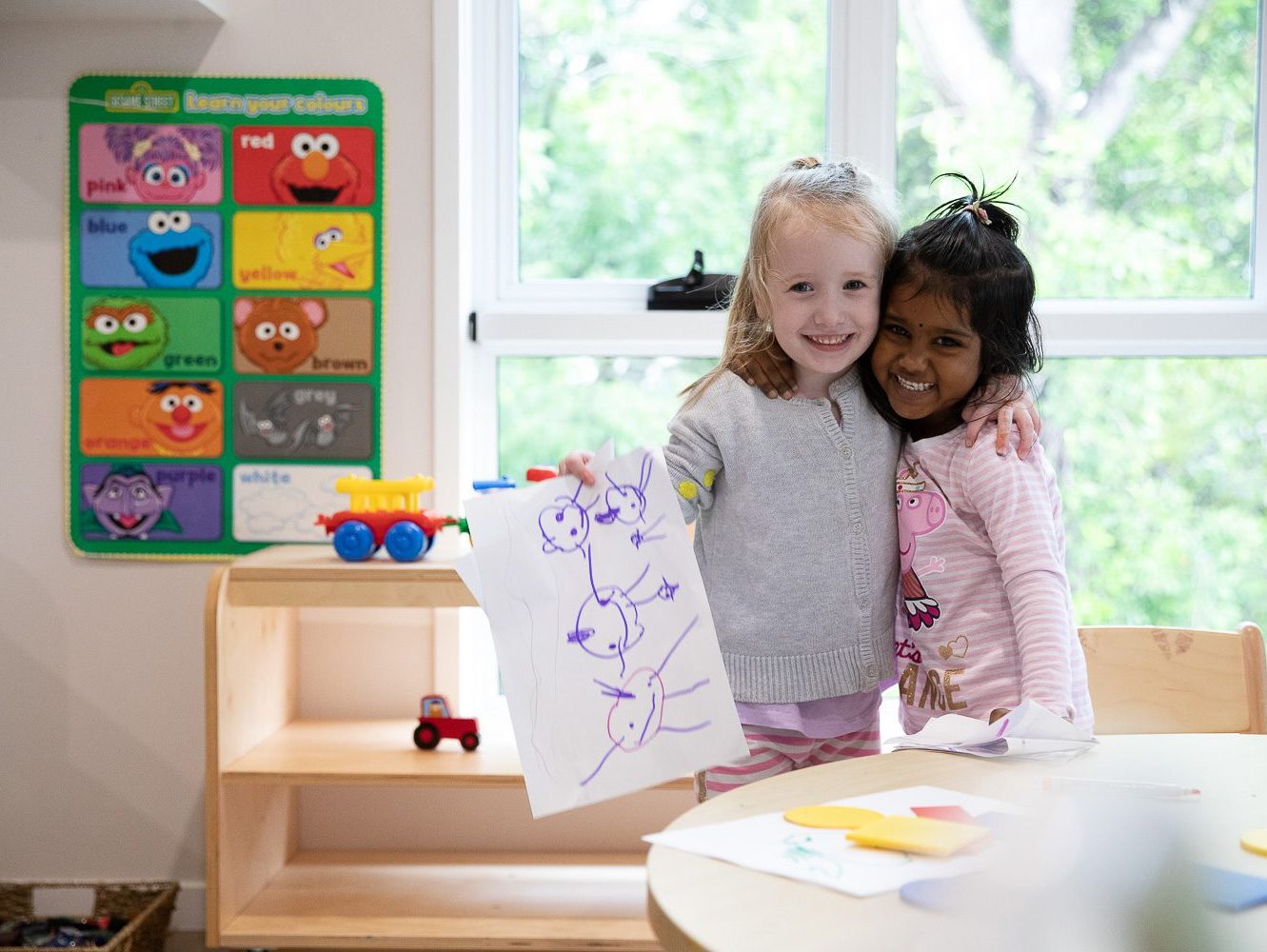
Journey’s School Transition Program
Transitioning from Journey Early Learning to school is a year-long commitment and continuous process. We value the connections that we make with the schools, and we keep in touch with them year after year. Our Early Childhood Teachers make every effort to visit our Kinder children in their new school and in the past, we’ve even had children come back for a visit to show off their school uniforms and tell us about their school experiences.
At the end of your child’s time in the 4-Year-Old Kinder classroom, the Early Childhood Teacher creates a Transition Learning and Development Statement which is a celebration of your child’s strengths, successes, and information on how they learn. This is the main handover document that we create so when your child meets their new Prep teacher, the teacher already knows the way your child learns. This helps to maximise learning in the classroom from the very start.
We’re proud of the School Readiness Program we run at Journey Early Learning and encourage families to contact the centre’s Early Childhood Teacher directly for more information regarding their child’s transition to school.
